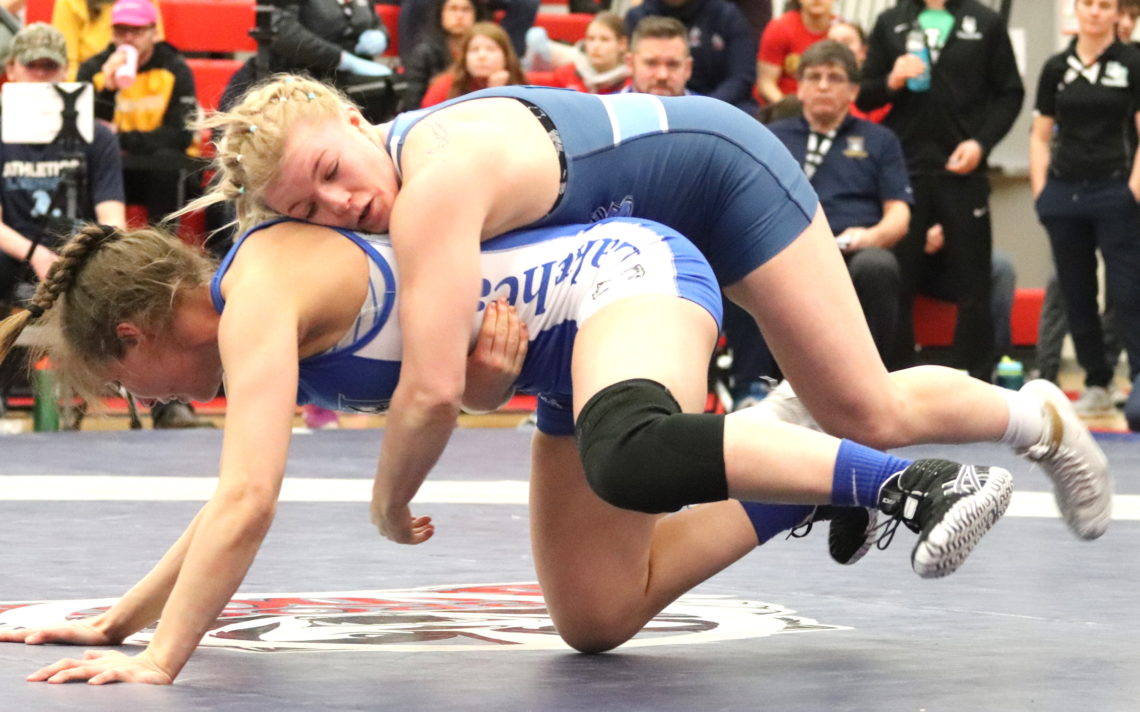
OUA cancels winter sports: Brock AD hiring postponed
The COVID-19 pandemic has forced Ontario University Athletics to pull the plug on its 2020-21 winter sports season.
The organization has cancelled its sport programming and championships up until March 31, 2021. Varsity sports affected are basketball, hockey, volleyball, wrestling, swimming, curling, fencing, track and field, figure skating and squash. The majority of Brock’s club sports, including cheer, dance, equestrian, powerlifting, ball hockey and ringette, are also cancelled.
“Although we are disappointed with the news that all OUA activity is cancelled until the end of March, we understand that these decisions are made keeping the health and wellness of our student-athletes, coaches and staff top of mind,” said Anna Lathrop, Brock’s Vice-Provost and Associate Vice-President, “We continue to be hopeful for a return to a competitive season, but in the meantime, we will continue to support our student-athletes virtually and within appropriate public health guidelines for training.”
The cancellation of the winter season will not cost athletes a year of eligibility.
“It takes immense commitment to be a student-athlete. This period of time has proven just how dedicated our student-athletes can be during such tough times, engaging in training and adapting to an online learning environment, all while following safety protocols for their sake, and their teammates,” said Emily Allan, Associate Director, Athletics, Brock Sports. “I look forward to next season because I believe our teams’ chemistry will be stronger than ever, having endured these uncertain times together.”
Virtual team and coach meetings, online physical, technical, skill and strength training sessions, virtual sport medicine support with therapists and physicians, and mental health and academic support will all continue for Brock’s athletes.
“We will continue our phased-in approach for a safe return to sport for all of our student-athletes, coaches and staff over the coming months with the hope of returning to normalcy in time for the 2021-22 season,” Allan said.
U SPORTS announced Thursday it has cancelled men’s and women’s national championships in basketball, hockey, swimming, track and field, volleyball and wrestling. The national curling championship had been cancelled earlier by Curling Canada. Back in June, the OUA cancelled fall sports.
BP Sports Niagara also learned this week Brock’s plan to fast track the hiring of a new athletic director has gone off the rails.
“COVID-19 is certainly having a dramatic and unfortunate financial impact on post-secondary institutions across Canada,” said a statement by Lathrop. “As a result of this, Brock has instituted a temporary pause on hiring until the full impact of COVID-19 is clear. This hiring pause does include the position of Director, Brock Sports.”
Lathrop declined to be interviewed for this story but did provide a follow-up quote upon news of the cancellation of the OUA winter season.
“Of course we are disappointed that the decision was made to pause on the athletic director search, however, the financial impact of the pandemic on the university has been significant. The most recent news today regarding the confirmation of the OUA season has also contributed to the rationale for this pause in our search. We remain hopeful that the search for an AD will be renewed in the summer of 2021.”
A source told BPSN that applicants for the position were informed by e-mail that the hiring was postponed until 2021 and that Brock would be in touch.
The athletics director’s position has been vacant since Neil Lumsden retired in the spring of 2019. The first attempt at replacing Lumsden started in May of that year but was delayed by administrative changes.
Brock posted the position on Sept. 1 and in a Sept. 9 interview Lathrop said she hoped to have the position filled within a month.
“Even though we are in COVID-19 and we are seeing that our competitive season didn’t happen and we are keeping our fingers crossed for winter, I still think it is very essential to get this position in place and then begin to work with our coaches and our athletes even if it is virtually,” she said on Sept. 9. “This is a very important time to convey that Brock Sports is an essential part of the university experience and we want to make sure that we have good direction, good leadership and, most importantly, we tie the mission of Brock Sports into the mission of the university’s strategic plan.”
Brock declined to provide any information on the overall financial impact on Brock by COVID, any moves Brock has made to mitigate some of the impact and any measures the athletics department has taken to address any revenue shortfalls.
“I’m sorry Bernie, there’s not anything more we can say at this point,” wrote Dan Dakin, a manager of communications and media relations at Brock. “As you can imagine, the impact of this is still being sorted out. Right now, the primary focus is on the health, well-being and safety of our students, faculty and staff.”
According to a Statistics Canada report, Canadian universities could be facing potential revenue losses ranging from $377 million (0.8 per cent) to $3.4 billion (7.5 per cent) because of the pandemic.
Tuition fees, which made up 29.4 per cent of universities’ revenues in 2018-19 compared to 24.7 per cent in 2013-14, are a significant portion of the losses because the reliance on tuition as a revenue source has grown over the past decade.
Almost 40 per cent of tuition revenues are derived from international students, who pay an average annual tuition of $32,041, almost five times the average for domestic students ($6,610). Fees paid by international students accounted for close to $4 billion in annual revenue for Canadian universities in 2017-18.
Using international student permit holder data information from Immigration Refugee and Citizenship Canada, it was determined that international student permits issued from June to August 2020 decreased by 58 per cent compared to 2019. Of the permits granted up to August 2020, 13 per cent were no longer valid at the beginning of September and 32 per cent will be invalid as of January 2021.
Statistics Canada also noted the pandemic may impact enrolment of domestic students at Canadian universities. A May to August Labour Force Survey determined 20 per cent of 17- to 24-year-old students who were attending school full-time in March and had the potential to return to school full-time in the fall, said they would not be returning.
Overall, almost 60 per cent of a Canadian university’s budget is spent on university staff and teaching salaries and benefits.

























